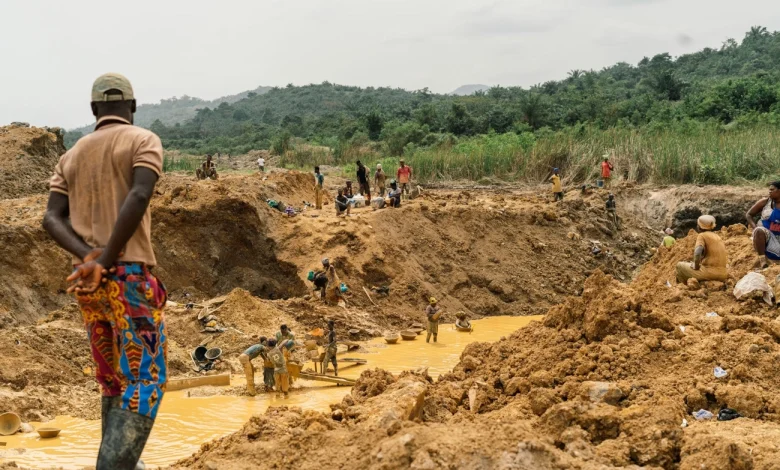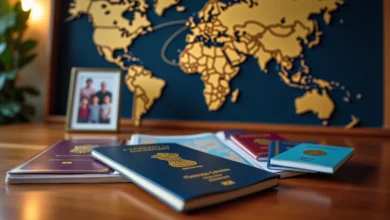
Galamsey and the Death of Ghanaian Conscience
In Ghana, the rivers tell a story — and it’s one of betrayal. Galamsey, the illegal mining scourge once framed as a national emergency and moral battleground, has now become a silent epidemic, buried under political convenience and partisan fog. Seven months into its tenure, the current government that once stood with activists now stands back as forests burn and violence brews in mining zones. The once-pristine waterways that sustained generations of Ghanaians have turned into toxic channels of mercury and cyanide, while political promises evaporate like morning dew under the harsh sun of reality. What began as a unified cry for environmental justice has dissolved into a murky pool of inaction and complicity.
WHEN ACTIVISTS SPOKE AND POLITICIANS LISTENED
In the run-up to the 2024 elections, civil society leaders, environmental defenders, and concerned citizens made galamsey a defining issue. Protest marches flooded Accra and Tarkwa. Clergy held prayer vigils on poisoned land. The then-opposition National Democratic Congress (NDC) joined hands, echoing the outrage and promising systemic change. Their alignment with grassroots movements helped galvanize public sentiment — and votes. The streets of major cities became theaters of resistance, with environmental activists leading candlelight vigils and organizing community forums. Traditional leaders, usually cautious about political involvement, stepped forward to denounce the destruction of ancestral lands. University students organized social media campaigns that reached millions, while religious leaders across denominations united in unprecedented interfaith initiatives against illegal mining. The momentum seemed unstoppable, as the NDC skillfully channeled this collective anger into a powerful electoral narrative.
GALAMSEY — FROM ELECTORAL TOOL TO POLITICAL SILENCE
Campaign platforms featured bold rhetoric: “We will end galamsey,” “We will restore dignity to our lands.” In mining communities, voters were promised licensed pathways to earn from their soil without criminalization. The NDC’s moral posture proved persuasive. But today, those pledges remain just that — words buried deeper than the mines. The transformation from fierce advocacy to deafening silence has been stark and swift. Town halls that once buzzed with environmental discussions now echo with empty chairs. Community leaders who were once given platform to speak truth to power find their calls unreturned. The promised licensing system remains in bureaucratic limbo, while illegal operators continue their destructive work with apparent impunity. What’s most telling is the absence of the very voices that once championed reform – political figures who rode the wave of environmental activism to power now seem to have lost their tongues when it comes to addressing the ongoing crisis.
WHERE THE STATE RETREATS, ARMS ADVANCE
Seven months after the transition, illegal mining has intensified. Forest reserves have become battlegrounds. Armed galamsey operators now threaten security personnel. Local government officials report intimidation and standoffs. Environmental laws are ignored. The vacuum left by political retreat is being filled with firepower. The situation has evolved from environmental degradation to a full-blown security crisis. Reports emerge daily of mining gangs equipped with sophisticated weapons, challenging not just forest guards but military patrols. Small communities find themselves caught in the crossfire, with local chiefs and environmental officers facing death threats for attempting to enforce regulations. The state’s gradual withdrawal has created power vacuums that are rapidly filled by well-funded mining cartels, some with international connections. These groups operate with military-grade equipment and surveillance technology, making enforcement increasingly dangerous for the few officials who still attempt it.
A LAND IN COLLAPSE — AND NO POLICY IN SIGHT
Deforestation is accelerating. Waterways like the Offin and Birim carry mercury and toxic runoff. Cocoa farms are vanishing beneath excavators. Experts warn of irreversible ecological damage. But no comprehensive bill, task force, or enforcement roadmap has emerged under the current administration — despite its activist origins. Environmental scientists document the rapid disappearance of crucial ecosystems, while agricultural experts predict devastating impacts on Ghana’s cocoa industry, a vital economic pillar. Sacred groves that have stood for centuries are being bulldozed overnight. Water treatment facilities struggle to cope with unprecedented levels of contamination, leaving communities to choose between toxic water or no water at all. The cost of environmental rehabilitation, already staggering, grows exponentially with each passing month of inaction. Yet, the political response remains fragmented and ineffective, characterized by occasional statements of concern but devoid of concrete action plans or resource allocation.
WHO WILL HOLD THE LINE NOW?
Ghana’s galamsey crisis demands truth — not just slogans. The very activists who ignited moral outrage must now challenge the administration that once stood with them. Journalists must investigate what happened to promised reform. Citizens must reject political memory loss and hold leaders accountable before the next campaign repeats the cycle. The time for diplomatic silence has passed. Environmental defenders who once celebrated victory must return to the frontlines, armed not with placards but with data, documentation, and demands for specific action. Traditional authorities must reclaim their role as guardians of the land, while religious leaders must revive their moral voice against this destruction. The academic community must produce research that cannot be ignored, while civil society organizations must rebuild the coalitions that once shook the corridors of power.






